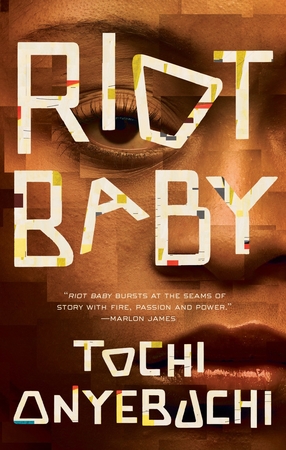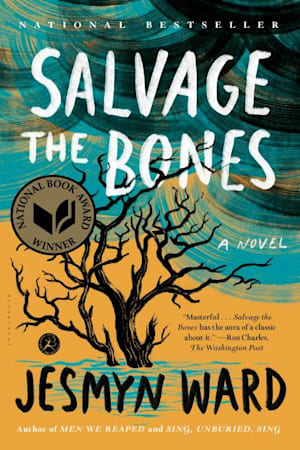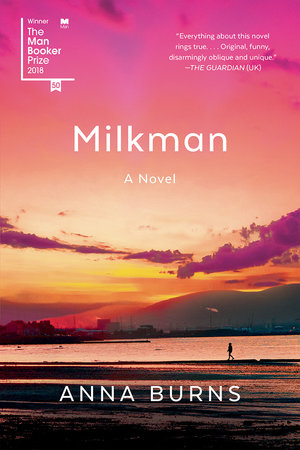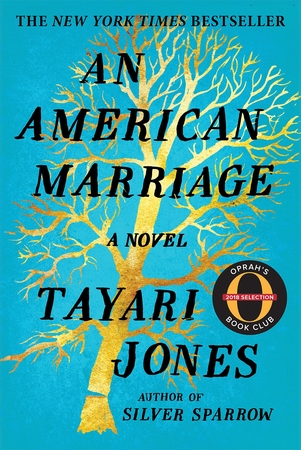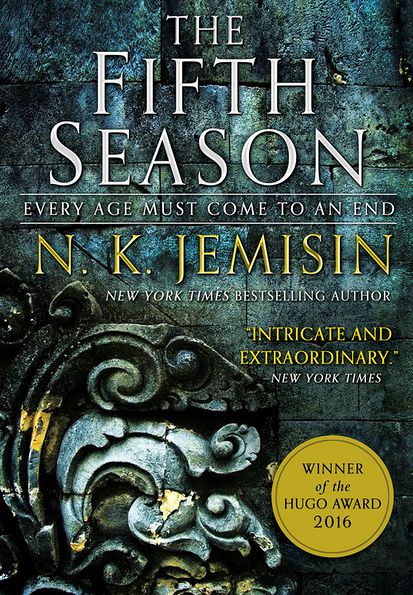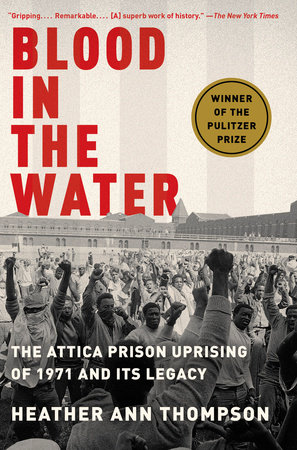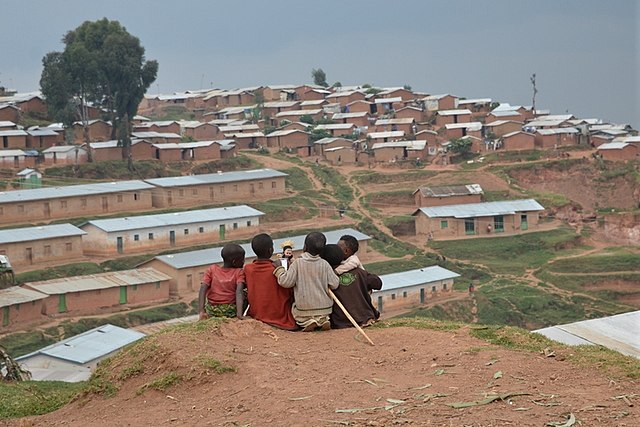Reading Lists
7 Books About Surviving Political and Environmental Disasters
What happens when everything falls apart?

An upbringing in a religiously robust household acquainted me very early on in life with the idea of cataclysm. Environmental destruction on an imperial, sometimes planetary, scale suggests that perhaps the only true corrective to human misbehavior is expeditious climate change. A flood to cleanse the canvas and prepare it for repainting. The forecast for those cities on the plain cloudy skies with a high chance of fire and brimstone. Nile-based food sources poisoned by riverwater turned to blood. True, the Bible tends to frontload a lot of catastrophe, but perhaps the writers were simply building up to that season-ending eschaton in The Book of Revelations. In Arabic, cataclysm, al-Nakba, refers to the 1948 exodus of more than 700,000 Palestinian Arabs from what would become the State of Israel.
My book Riot Baby is the story of two siblings—whose lives are bookended by macrocosmic episodes of Sturm und Drang—trying to make a way for themselves in a world of institutional racism, police violence, and mass incarceration, all while Ella, the older of the two, begins to develop powers
that promise to turn their world—the world—on its head. These powers promise deliverance. And they threaten cataclysm.
In many ways, political convulsions and their ecological counterparts share DNA. They are larger than any one person, macrocosmic. But it’s the person who must walk through the firestorm. The works below speak to that duality, the emotional paroxysms inside characters that find their cause, sometimes their twin, in events that can seem almost cosmic in nature and temperament.
Salvage the Bones by Jesmyn Ward
“If one of Daddy’s drinking buddies had asked what he’s doing tonight, he would’ve told them he’s fixing up for the hurricane.” Ward’s tale of pregnant, teenage Esch and her rural family in Bois Sauvage, Mississippi on the eve of and during the actuality of Hurricane Katrina begins with an omen. One of Esch’s pit bulls has “turned on herself.” The lyricism that colors this book that won the 2011 National Book Award paints the story in dark mythical colors that nonetheless give this family’s struggle to hold together through natural disaster a terrifying terrestriality. I was a freshman in college when Hurricane Katrina hit, but I wouldn’t find Jesmyn Ward’s gorgeous, heart-rending, heart-filling book until well after graduation. It is a portrait that humanized the desperation I saw on the TV news all those years ago. The flattened black Americans judged and castigated by newscasters had been rendered in flesh and blood and soul.
Milkman by Anna Burns
“The day Somebody McSomebody put a gun to my breast and called me a cat and threatened to shoot me was the same day the milkman died.” No one and no place has a name in Anna Burns’s Booker Award-winning novel about a girl, “middle sister,” trying to be as indistinguishable and unnoticed as possible in a 1970s Northern Ireland ravaged by The Troubles. It’s an ecosystem of paramilitary executions, bomb scares, curfews, and patriarchal violence. But it also contains gossip, the social pressures that attend being an 18-year-old girl, and the demands of family. The IRA is here but not named. Belfast is here but not named. To name them would be to draw attention, to become interesting. And in the midst of cataclysm, the last thing you want to do is draw the attention of its architects.
An American Marriage by Tayari Jones
Jail, prison, and police often come together to resemble cosmic forces, morphing from individual gears in a machine ostensibly oriented towards justice into a meteorological event: a flood or typhoon that devastates communities, destabilizes families, and leaves those left behind barely enough time to repair what can be repaired before the next storm strikes. For too many, mass incarceration less resembles a series of choices and consequences and more resembles a natural disaster, a mini-apocalypse. The consequence in An American Marriage by Tayari Jones is the destruction of a married, middle-class African American couple. Roy is wrongfully convicted of a rape he did not commit, leaving behind his wife, Celestial. Their tough, stunning, all-too-real story spins out from there. As pervasive as America’s carceral system is in society, I’ve come across precious few novels that delve deeply into the consequences of this almost Biblical plague on those people affected, certainly few that do so with the power and pathos of Jones’s novel.
If You Leave Me by Crystal Hana Kim
The cataclysm in Crystal Hana Kim’s debut is the civil war between North and South Korea—a war that, to this day, has not yet formally ended. Sixteen-year-old Haemi Lee, her widowed mother, and her ailing brother flee their village after North Korean forces invade and end up at a refugee camp along the coast in Busan. Haemi finds her own refuge of sorts in the company of her childhood friend Kyunghwan. Their friendship morphs into one vector of a love triangle when Kyunghwan’s cousin, Jisoo, vies for Haemi’s attentions, offering security and deliverance from the privations of refugee life for Haemi and her family. Inspired by stories Kim’s grandmother told her about life as a refugee during the war, Kim’s novel expands into a polyphonic multigenerational saga about the inner lives of women suffering through and overcoming their own personal cataclysms as survivors of war, human beings containing multitudes.
The Fifth Season by N.K. Jemisin
In a place where the End of the World is quite literally a seasonal occurrence, Jemisin’s mind-bursting, heart-shattering novel begins with an unthinkable loss. Essun, a woman with the ability to manipulate earth and stone, lives in hiding with her husband and two children. But when one child is violently murdered and the other kidnapped, her world is quite literally riven. Her quest to reclaim her daughter propels this ambitious and ambitiously structured book, as well as the rest of this astounding, accomplished, much-feted trilogy. Catastrophic climate change and racial oppression co-exist here in this novel that dares to ask the question: what good is a monstrous world to those trapped in its maw? Then, more daringly, what if we burned it all down?
Human Acts by Han Kang
Few books that I’ve read capture cataclysm as violent political reckoning better than Human Acts by Han Kang, her fictionalization of the massacre of students in 1980 by South Korean troops during what would become known as the Gwangju Uprising. At the center of Han’s novel is the murder of a boy. Spiraling out of that is a series of interlocking chapters from the perspectives of people touched or affected by the boy’s life and death. Through the eyes of the boy’s best friend, his worried then grieving mother, a factory worker, an editor, and others, Kang leads the reader on a journey through violence and agency, gruesome, unsparing, and tender in equal measure.
Blood in the Water: The Attica Prison Uprising of 1971 by Heather Ann Thompson
So much of our society—any society—can be explained by the treatment of its incarcerated. Their presence, their condition, their arrival, their departure, their return. The incarcerated and their jailors take center stage in Heather Ann Thompson’s recounting of those nights in 1971 when prisoners at Attica Correctional Facility took over their prison and initiated what she once called one of the most remarkable civil rights moments in American history. The American police state sometimes feels like a cosmogonal entity, a Titan whose enormity is ultimately unknowable, as pervasive as air and as arbitrarily menacing as any member of the Greek pantheon. As the forces of state and federal government are arrayed to suppress the prison rebellion, Attica is turned into one of those cities on the plain, subjected to the same exacting fire and brimstone that once rained down on Sodom and Gomorrah. Incredibly researched and utterly engrossing, Professor Thompson takes us through the buildup, the uprising itself, and its long, poignant, tragic aftermath. The American underclass dared to assert their human rights and cataclysm was the result. But out of the fire, Professor Thompson has pulled stories—real stories—that attest to the ways in which humanity can transcend upheaval and persist in the face of Armageddon.




